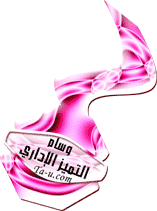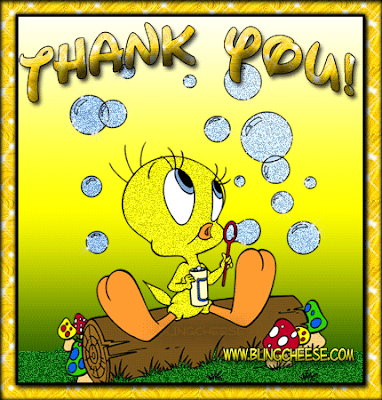ميرنا
عــــضو ســــــوبر

عدد الرسائل : 300
العمر : 36
المهنة : 
الهواية : 
الدولة : 
المزاج : 
الجنس : 
الأوسمة : 
نقاط : 792
تاريخ التسجيل : 07/08/2008
 |  موضوع: Parts of a sentence موضوع: Parts of a sentence  الجمعة 23 أكتوبر 2009, 4:22 am الجمعة 23 أكتوبر 2009, 4:22 am | |
| Parts of a sentence
Punctuation
Period [.]
-A-
Use a period to show the end of a sentence.
Hockey is a popular sport in Canada.
The federal government is based in Ottawa. <blockquote>-B-
Use a period after certain abbreviations.
B.C. is the province located on the West Coast.
Dr. Bethune was a Canadian who worked in China.
The company is located at 888 Bay St. in Toronto.
It is 4:00 p.m. in Halifax right now.
Question Mark [?]
Use a question mark at the end of a sentence to show a direct question.
How many provinces are there in Canada?
Note: do not use a question mark for indirect questions.
The teacher asked the class a question. Do not ask me why.
Exclamation Mark [!]
Use an exclamation mark at the end of a sentence to show surprise or excitement.
We won the Stanley Cup!
The forest is on fire!
Comma [,]
-A-
Use a comma to show a pause in a sentence.
Therefore, we should write a letter to the prime minister.
-B-
Use a comma with quotation marks to show what someone has said directly.
"I can come today," she said, "but not tomorrow."
-C-
Use commas for listing three or more different things.
Ontario, Quebec, and B.C. are the three biggest provinces.
-D-
Use commas around relative clauses that add extra information to a sentence.
Emily Carr, who was born in 1871, was a great painter.
Apostrophe [']
-A-
Use an apostrophe to show ownership of something.
This is David's computer.
These are the player's things. (things that belong to the player)
Note: For nouns in plural form, put the apostrophe at the end of the noun.
These are the players' things. (things that belong to the players)
-B-
Use an apostrophe to show letters that have been left out of a word.
I don't know how to fix it.
Quotation Marks ["]
Use quotation marks to show what someone has said directly.
The prime minister said, "We will win the election."
"I can come today," she said, "but not tomorrow."
Colon [:]
-A-
Use a colon to introduce a list of things.
There are three positions in hockey: goalie, defence, and forward.
-B-
Use a colon to introduce a long quotation.
The prime minister said: "We will fight. We will not give up. We will win the next election."
Semicolon [;]
-A-
Use a semicolon to join related sentences together.
The festival is very popular; people from all over the world visit each year.
-B-
Use a semicolon in lists that already have commas.
The three biggest cities in Canada are Toronto, Ontario;
Montreal, Quebec; and Vancouver, B.C.
Dash [-]
-A-
Use a dash before a phrase that summarizes the idea of a sentence.
Mild, wet, and cloudy - these are the characteristics of
weather in Vancouver.
-B-
Use a dash before and after a phrase or list that adds extra information in the middle of a sentence.
The children - Pierre, Laura, and Ashley - went to the store.
Most Canadians - but not all - voted in the last election.
-C-
Use a dash to show that someone has been interrupted when speaking.
The woman said, "I want to ask - " when the earthquake began to shake the room.
Hyphen [-]
-A-
Use a hyphen to join two words that form one idea together.
sweet-smelling
fire-resistant
-B-
Use a hyphen to join prefixes to words.
anti-Canadian
non-contact
-C-
Use a hyphen when writing compound numbers.
one-quarter
twenty-three
Nouns
noun is a person, place, thing, or idea. Every sentence must have a noun as its subject.
: Examples
The bear sleeps.Toronto is a city.
Types of Nouns
Proper Nouns
Common Nouns
Forms of Nouns
Plural Nouns
Possessive Forms
Proper Nouns
A proper noun is the name of a person, place or thing. Proper
nouns should always be capitalized.
Examples
Toronto
Mr. BrownSally
Common Nouns
A common noun is any noun that is not a proper noun. Common
nouns are not capitalized.
: Example
the citya leaderthis woman
Plural Forms
The plural form of a noun indicates more than one. The plural form is usually formed by adding an s or es.
: Examples
one week, two weeksa house, many housesone box, two boxes
Nouns that end in a consonant followed by a y are made plural by dropping the y and adding ies.
: Examples
one country, two countries
Nouns that end in a vowel followed by a y are made plural by adding s.
: Example
one toy
two toys
Nouns that end in f or fe drop the f or fe and add ves.
: Example
one leaf, two leaves
Certain irregular nouns have special plural forms.
: Example
one foot, two feeta mouse, many mice
To find the plural form of a noun that you are unsure of, check the Gage Canadian Dictionary.
Possessive Forms
The possessive form of a noun indicates ownership or modifies another noun. The possessive form is usually formed by adding 's to the end of a noun.
: Example
the player's equipmentthe woman's jobCanada's government
Verbs
Verbs
are words that are used to express an action. Every sentence must have
a verb that shows what the subject is doing or explains what is going
on.
: Example
The bear sleeps.Toronto is a city.
Subject and Verb Agreement
Each verb must agree with the subject in number. Check your sentences carefully to make sure your verbs agree with your nouns.
: Example
I study He/She/It studies You study They study
Incorrect: We studies at the university.Correct:We study at the university.
Verb Tense
Verb
tenses give information about when an action took place. Choose the
right tense to indicate your meaning in your sentences. Change verb
tenses only when there is a real change in time. When you are writing
about an idea, stay with the same tense.
: Example
Incorrect:When I open the door, my dog greeted me.Correct:When I opened the door, my dog greeted me. (past tense)When I open the door, my dog greets me. (present tense)
Types of Verb Tenses:
Present Tense
Present Continuous Tense
Past Tense
Past Participle Tense
Future Tense
Present Tense
The present tense shows that an action is taking place in the present but does not indicate when the action will end.
: Example
We go to the store.They study at the university.
Special uses of the present tense:
Use the present tense to describe something that is universally true and not limited to a particular time.
: Example
The boiling point of water is 100 degrees Celsius.
Use the present tense to discuss the contents of a book, a poem, or an essay even though the work might be written in the past.
: Example
Julius Caesar is murdered by Brutus in Shakespeare's play.
Present Continuous Tense
The present continuous tense shows that something is happening in the present and will have a definite end.
: Example
We are going to the store now.They are studying at the university.
Past Tense
The past tense shows that something was completed in the past.
: Example
We went to the store yesterday.They studied at the university in 1980.
Past Participle Tense
The
past participle tense shows that something was completed in the past
before another action. Usually, the past participle and the past tense
are used in the same sentence.
: Example
We had gone to the store when she arrived.They had studied at the university before they found jobs.
Future Tense
The future tense shows that something will happen in the future.
: Example
We will go to the store later today.They will study at the university in the coming September.
Adjectives
Adjectives
are words used to describe or modify nouns. They give the reader more
information about a noun. Use adjectives to make your writing more
interesting.
: Example
a good essaythe intelligent studentour hard-working leader
Some adjectives can be used for comparing different things
: Example
Vancouver is cold. Toronto is colder. Winnipeg is coldest.This book is good. That book is better. My book is the best.
Adverb
Adverbs
are words used to describe actions. They give additional information
about when, how, and where something is happening. Use adverbs to make
your writing more precise and interesting.
She spoke yesterday. (when)
She spoke quickly. (how)
She spoke here. (where)
Some adverbs are used to compare different actions.
I can run fast. She can run faster. He can run the fastest.
I spoke well. She spoke better. He spoke the best.
Prepositions
Prepositions
are used before nouns to give additional information in a sentence.
Usually, prepositions are used to show where something is located or
when something happened.
Prepositions Show Time ,Location ,or Action
Frequently Confused Words
accept, except
Accept means "to receive". Example: Please accept my gift.
Except means "not including". Example: I brought all the gifts except yours.
advice, advise
Advice is an "opinion about what should be done". Example: She gives good advice.
Advise means "to recommend". Example: Please advise me on what to do.
affect, effect
Affect means "to influence". Example: Do not let the loss affect you.
An effect is "a result". Example: The loss did not have an effect on me.
all ready, already
All ready means "everything is ready". Example: We are all ready to move.
Already means "previously". Example: We already moved our things yesterday.
buy, by
Buy means "to purchase". Example: Please buy me a ticket.
By means "beside". Example: The book is by the table.
choose, chose
Choose means "to select". Example: Today, I will choose a new house.
Chose is the past tense of choose. Example: Yesterday, I chose a new house.
complement, compliment
Complement means "to make complete". Example: This hat will complement my new dress.
A compliment is something said in praise. Example: Thank you for the compliment about my dress.
emigrate, immigrate
Emigrate means "to leave one country to settle in another". Example: I intend to emigrate from Hong Kong.
Immigrate means "to come to live in a new country". Example: I intend to immigrate to Canada.
it's, its
It's is the short form of "it is". Example: It's in the dog house.
Its is a pronoun that shows ownership or possession. Example: The dog has its own house.
loose, lose
Loose means "not tight". Example: My pants are loose.
</blockquote><blockquote>Lose means "to be defeated or no longer have". Example: I do not want to lose the game.
miner, minor
A miner is a person who works in a mine. Example: My uncle is a miner.
Minor is an adjective that means "unimportant". Example: This is a minor problem.
A minor also refers to a person who is not yet an adult. Example: It is illegal for a minor to drink alcohol.
past, passed
Past means "gone by" or "history". Example: The car drove past my house.
My past is very interesting.
Passed is the past tense of pass. Example: We passed the truck earlier.
principal, principle
A principal is the head of a school. Example: The principal spoke to us today.
A principle is an important fact or law. Example: The principle of democracy is important to Canadians.
stationary, stationery
Stationary means to be "standing still". Example: Please remain stationary.
Stationery means "writing materials". Example: They went to the store to buy some stationery.
than, then
Than means "in comparison with". Example: He is bigger than me.
Then means "next". Example: After going home, he then started his assignment.
their, there, they're
Their is a form of "they" that shows ownership. Example: Their flowers are on the table.
There describes where something is. Example: The flowers are there on the table.
They're is a short form of "they are". Example: They're going to buy flowers.
threw, through
Threw is the past tense of throw. Example: He threw the ball over the fence.
Through means from "end to end". Example: We drove through the tunnel.
to, too, two
To means "in the direction of". Example: He went to the store.
Too means "also". Example: He went to the store, too.
Two is a number. Example: Two of my friends went to the store.
weather, whether
Weather means "conditions outdoors". Example: The weather is terrible.
Whether is an expression of choice between two options. Example: I do not know whether I will stay home or go to school.
your, you're
Your is a form of "you" that shows ownership. Example: Your car is new.
You're is a short form of "your are". Example: You're going to the store.
</blockquote> | |
|
احلي بنوته
مـ،،ـراقـ،،ـب عـ،،ـا،،م


عدد الرسائل : 530
العمر : 36
المهنة : 
الهواية : 
الفريق المفضل : 
الدولة : 
المزاج : 
الجنس : 
الأوسمة : 
نقاط : 1295
تاريخ التسجيل : 20/10/2009
 |  موضوع: رد: Parts of a sentence موضوع: رد: Parts of a sentence  الجمعة 13 نوفمبر 2009, 11:41 am الجمعة 13 نوفمبر 2009, 11:41 am | |
| | |
|
حلاوة روح
مـ،،ـراقـ،،ـب عـ،،ـا،،م


عدد الرسائل : 796
العمر : 31
المهنة : 
الهواية : 
الدولة : 
المزاج : 
الجنس : 
الأوسمة : 
نقاط : 999
تاريخ التسجيل : 05/08/2008
 |  موضوع: رد: Parts of a sentence موضوع: رد: Parts of a sentence  الثلاثاء 17 نوفمبر 2009, 6:03 am الثلاثاء 17 نوفمبر 2009, 6:03 am | |
| | |
|
زهرة المنتدى
مــ،،ــشـ،،ـرفة


عدد الرسائل : 591
العمر : 40
المهنة : 
الهواية : 
الفريق المفضل : 
الدولة : 
المزاج : 
الجنس : 
الأوسمة : 
نقاط : 363
تاريخ التسجيل : 16/06/2008
 |  موضوع: رد: Parts of a sentence موضوع: رد: Parts of a sentence  الخميس 19 نوفمبر 2009, 3:33 am الخميس 19 نوفمبر 2009, 3:33 am | |
| | |
|





















